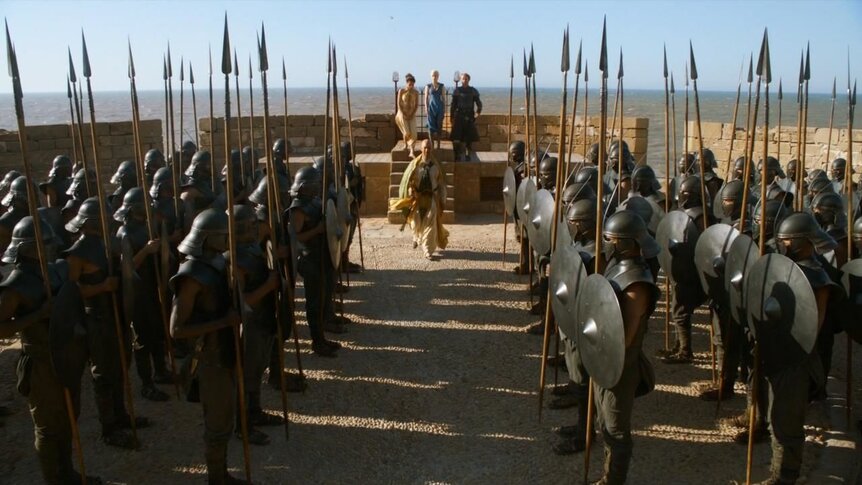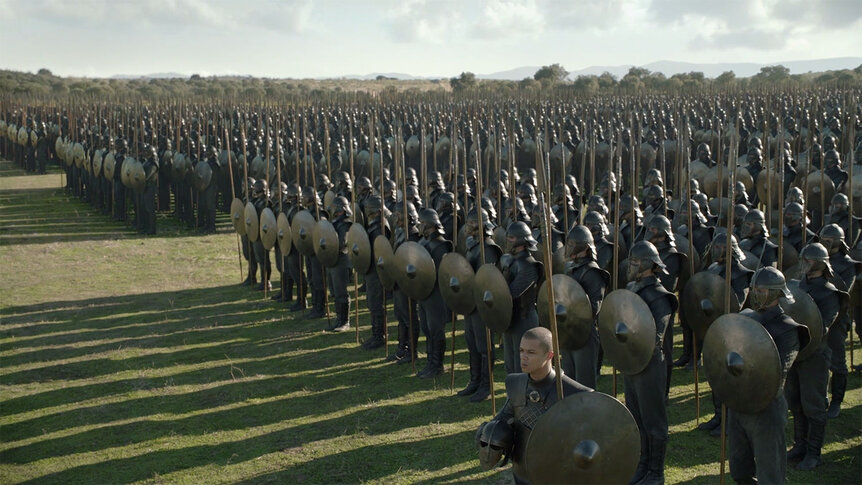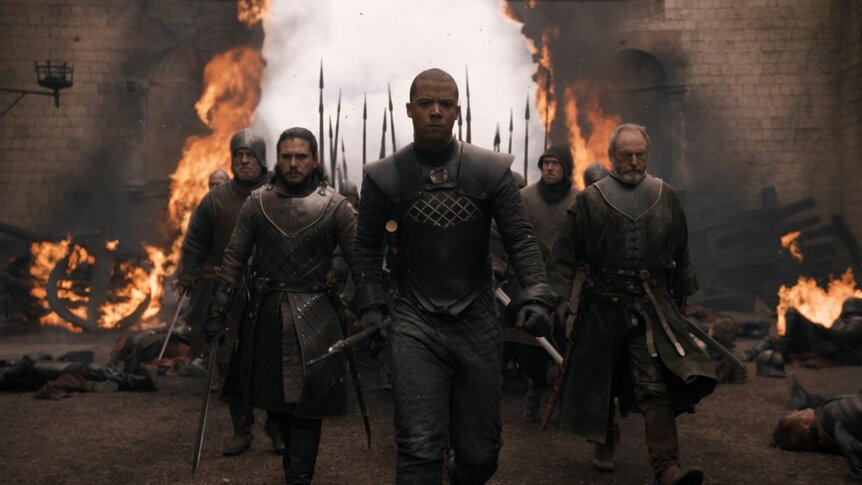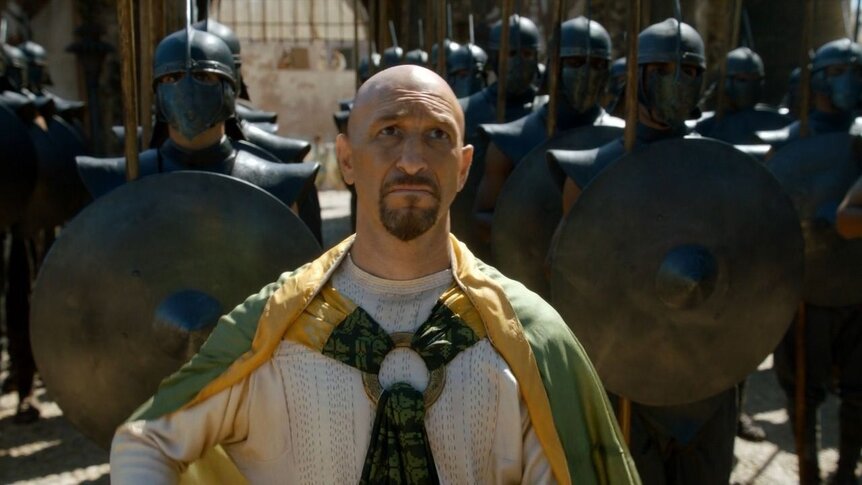Create a free profile to get unlimited access to exclusive videos, sweepstakes, and more!
Daenerys' Season 3 triumph is sullied with a dark new meaning after 'The Bells'
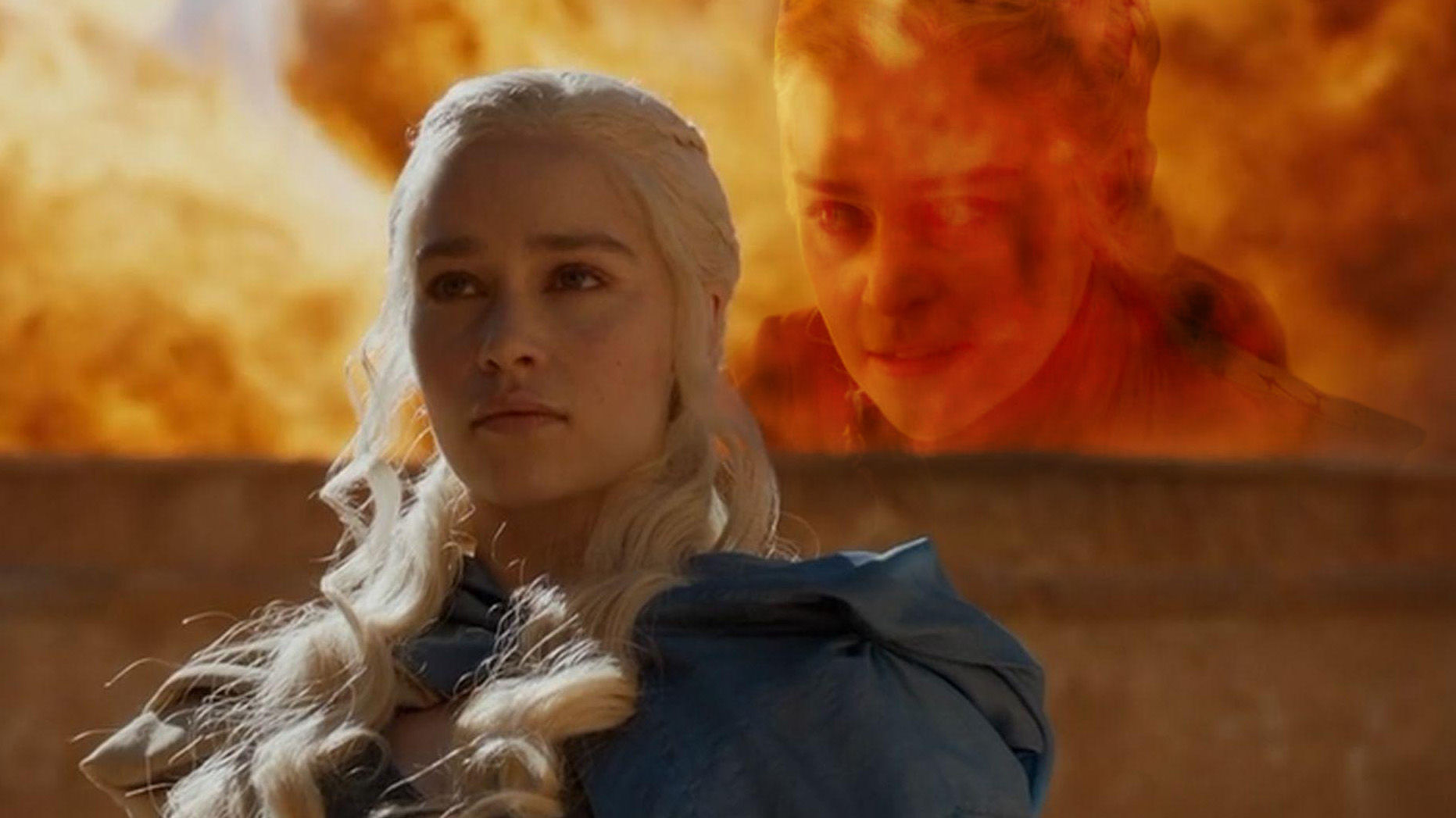
As we count down to the Game of Thrones series finale, we're looking back at the most pivotal moments of the show's first seven seasons.
The Red Wedding is by far the most shocking moment of Game of Thrones' third season, and it's arguably the most pivotal, as it decapitated Northern power (literally) and cemented the Lannisters' control of the Seven Kingdoms. But enough metaphorical ink has been spilled on the Red Wedding to rival all the Stark blood that stained Walder Frey's living room. Instead, let's focus on Season 3's other major shocker — one that's especially and darkly relevant in the wake of last Sunday's episode.
"A dragon is not a slave," said Daenerys Targaryen in perfect Valyrian as she turned to face Kraznys mo Nakloz. The slavemaster had recently traded her all 8,000 of his Unsullied warriors in exchange for one of her dragons. It was a deal Daenerys had no intention of keeping; she chose instead to immolate Kraznys, command her legions to kill all the slavemasters, and finally offer the Unsullied a chance to serve her as free men.
It was the first time Daenerys earned her title as "the Breaker of Chains," and it was also, as viewers would learn five seasons later, a crucial step on the road to the brutal sacking of King's Landing.
Rewatch the scene, from Season 3, Episode 4, "And Now His Watch Has Ended," and it's hard not to get chills. Daenerys turns the tables on an evil man, stripping him and his slaveholding ilk of power while simultaneously gaining one of the fiercest armies in all of Essos. Emilia Clarke is often pegged as one of the weaker actors among Game of Thrones' main cast, but she can forcefully deliver lines in a made-up language better than anyone. At the time the episode aired, and arguably until Sunday night, Dany's badass reversal was an undeniable "Yass Khaleesi" moment.
Daenerys needed the win, too. She was in dire straits at the start of the previous season. Sure, she had the world's only three dragons, but they were each about the size of a small chicken. Very few Dothraki who stayed by her side were capable of fighting, and Ser Jorah Mormont could only do so much. Even though she managed to escape Qarth with some gold and a renewed sense of purpose, Dany still didn't have an army.
Game of Thrones never quite gave the Unsullied an opportunity to live up to all the hype. These eunuch soldiers, trained almost from birth, are the ultimate fighting force. They're an even more militarized and formidable version of the real world's Spartans of 300 fame. The most famous example of the Unsullied exploits came centuries before the events of the show, when 3,000 Unsullied held back an assault by a Dothraki khalasar over 50,000 strong.
Daenerys now had more than twice that number of Unsullied at her disposal. Game of Thrones downplayed just how elite these soldiers were in later episodes and seasons (admittedly, they fight best as an army, not as police in the crowded alleyways of Meereen). Still, even if it never quite felt like the Unsullied were as good as they were supposed to be, they were still a formidable army. That army kept Dany alive, and it helped take control of cities and gain new allies.
And then they helped her massacre civilians when she destroyed King's Landing in Season 8.
Game of Thrones fans and critics alike are debating whether Daenerys' transformation into the Mad Queen felt earned. The general consensus seems to be that the actual moment itself felt artificial and forced — David Benioff and D.B. Weiss' "Inside the Episode" explanation that she snapped because she hated the Red Keep does not seem like sufficient enough of an explanation for such a major shift, especially because that reading isn't really conveyed through the actual episode. However, fans largely agree that there's precedent for Daenerys' madness.
All throughout the series, Daenerys has expressed a willingness to be ruthless to anyone standing in the way of her power. Granted, her coming to power was typically a good thing — she's the Breaker of Chains, after all — but she's always been very clear about her goal, and she hasn't been too willing to compromise to get it. Daenerys burned those who wronged her, including her brother Viserys, the witch Mirri Maz Duur, some Meereenese noblemen, the Khals at Vaes Dothrak, and the Tarlys after the loot train battle, to name a few.
She also burned Kraznys mo Nakloz and many other slave owners in Astapor. Kraznys was a monster, a brutal man who profited from a vile industry that stole away children's flesh and humanity to turn them into killers. Nobody was sad when Daenerys burned him to a crisp. Odds are good that you cheered, actually.
But Daenerys' actions in the show's penultimate episode demand that we look at this moment in a new light. In its last two rushed seasons, Game of Thrones did not necessarily put in the character work needed to bridge the gap between burning slavers and burning innocent children.
Maybe it's because Game of Thrones didn't do enough to sell the moment that it's especially odd to go back and watch Dany kill slavers to get her Unsullied army. Not only do we now know where this once-inspiring moment takes us, but we have to look, closely, to see what might not be all the way there.
Without a clearer idea of how Daenerys transformed from a Breaker of Chains to a war criminal, we need to find the evidence in what the show has given us. Daenerys' big moment now must serve as a crucial stepping stone on the sparsely paved road to her destiny as the Mad Queen, instead of the triumphant moment we thought — and might still want to think — it was.
